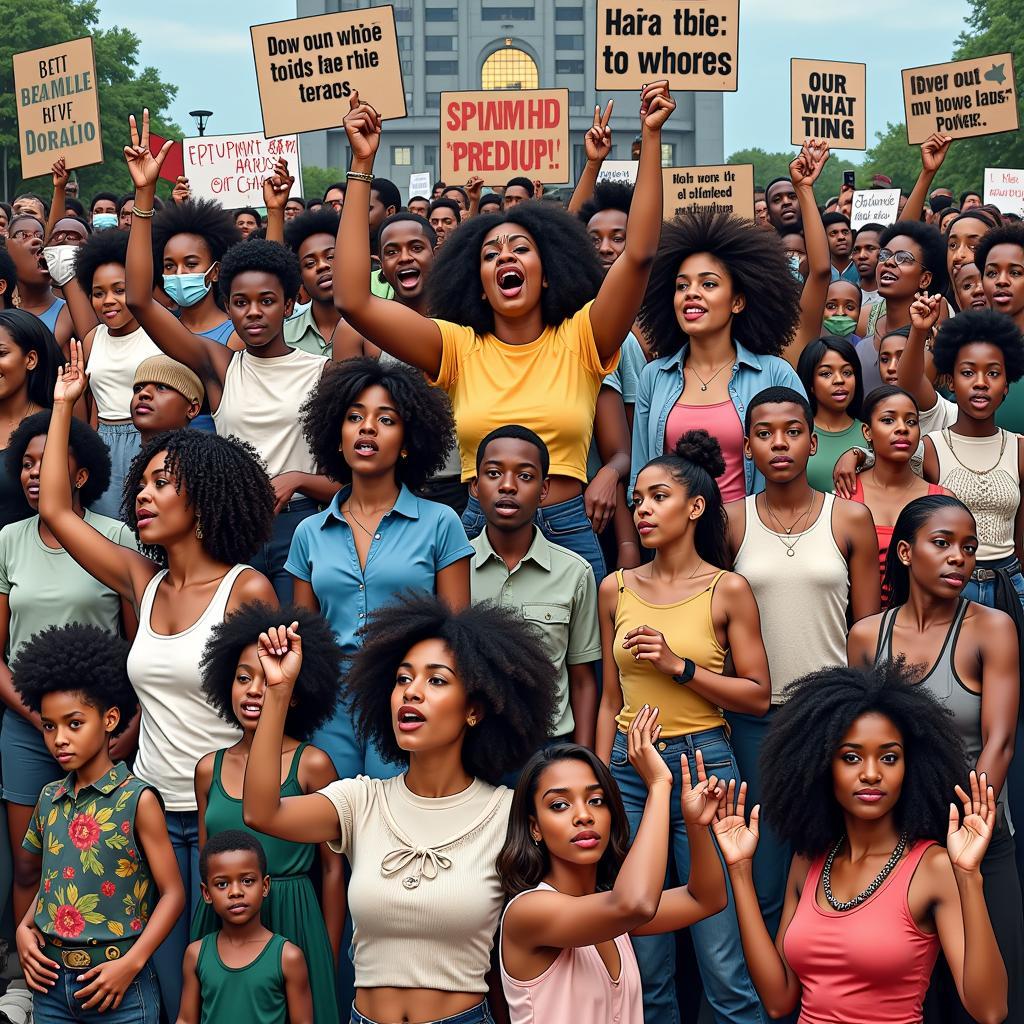Understanding Why Some African Americans Kneel for the National Anthem
The act of kneeling during the national anthem, particularly within the context of African American communities, has been a point of contention and discussion in recent years. This symbolic gesture goes beyond a simple protest; it represents a complex tapestry of pain, resilience, and the ongoing fight for equality deeply woven into the fabric of American history.
A History Rooted in Protest
To understand the significance of kneeling during the national anthem, we must first delve into the historical context of protest within the African American community. From the silent defiance of the Underground Railroad to the powerful marches of the Civil Rights Movement, African Americans have consistently utilized symbolic acts to challenge injustice and demand recognition of their fundamental rights.
 African American Protests Throughout History
African American Protests Throughout History
Colin Kaepernick: Igniting a National Conversation
In 2016, former NFL quarterback Colin Kaepernick ignited a national conversation when he chose to kneel during the national anthem. Kaepernick’s action, intended to bring attention to police brutality and racial injustice faced by African Americans, sparked both support and outrage. It forced America to confront uncomfortable truths about systemic racism and the ongoing struggle for equality.
The Anthem: A Symbol of Discord?
For many Americans, the national anthem represents unity, patriotism, and the ideals upon which the nation was founded. However, for some African Americans, the anthem’s message of “land of the free” rings hollow in the face of lived experiences marked by discrimination, inequality, and a lack of equal opportunity.
Kneeling: An Act of Reverence, Not Disrespect
It is crucial to understand that kneeling, in many contexts, is a sign of reverence and respect. It is often associated with prayer, reflection, and a solemn acknowledgment of something bigger than oneself. When some African Americans choose to kneel during the national anthem, it is not out of disrespect for the flag or the country but rather a plea for the nation to live up to its promise of liberty and justice for all.
A Call for Dialogue and Understanding
The decision to kneel during the national anthem is deeply personal and often laden with emotion. While it remains a point of controversy, it presents an opportunity for open and honest dialogue about race, equality, and the meaning of true patriotism. Instead of focusing on the act itself, perhaps we should shift our attention to understanding the motivations behind it and working towards creating a society where such acts of protest are no longer necessary.
Conclusion
The act of kneeling during the national anthem by some African Americans is a complex issue deeply rooted in the historical and ongoing struggle for racial equality. It is a visual reminder of the disconnect between the ideals of liberty and justice for all and the lived experiences of many African Americans. Understanding the motivations behind this act, engaging in respectful dialogue, and working towards dismantling systemic racism are crucial steps in bridging the divide and creating a more just and equitable society for all.



